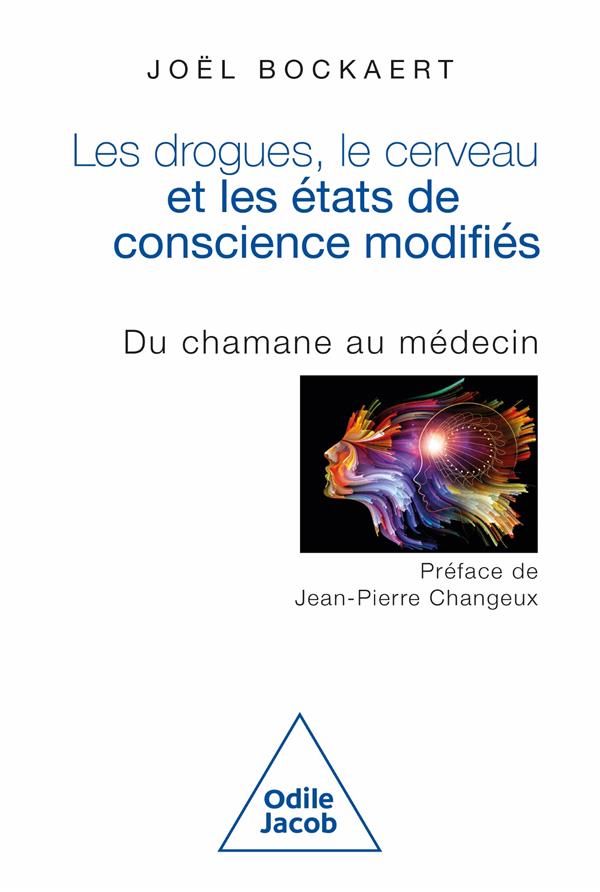The Académie des Sciences virtual bookshop
Lessons in joyful mathematics - Cédric Villani
NEW 2025!
For the past fifteen years, Cédric Villani has been recounting the incredible adventure of mathematics, as indispensable as it is joyful, around the world. In this book, he pays tribute to a discipline like no other, an art as much as a science, illustrating it with familiar phenomena, demonstrations of subtle beauty, and anecdotes that have made history.
As the pages turn, the great names of mathematics take on flesh and, beyond their theorems, weave a colourful fresco where science, culture and poetry cross and recross, mutually enriching each other. Alongside the daring pioneers are today's mathematicians, who continue to develop the scientific subject through encounters, creations and controversies.
Thought for all audiences, these
Lessons in Joyful Mathematics invite the reader to an exciting encounter
.
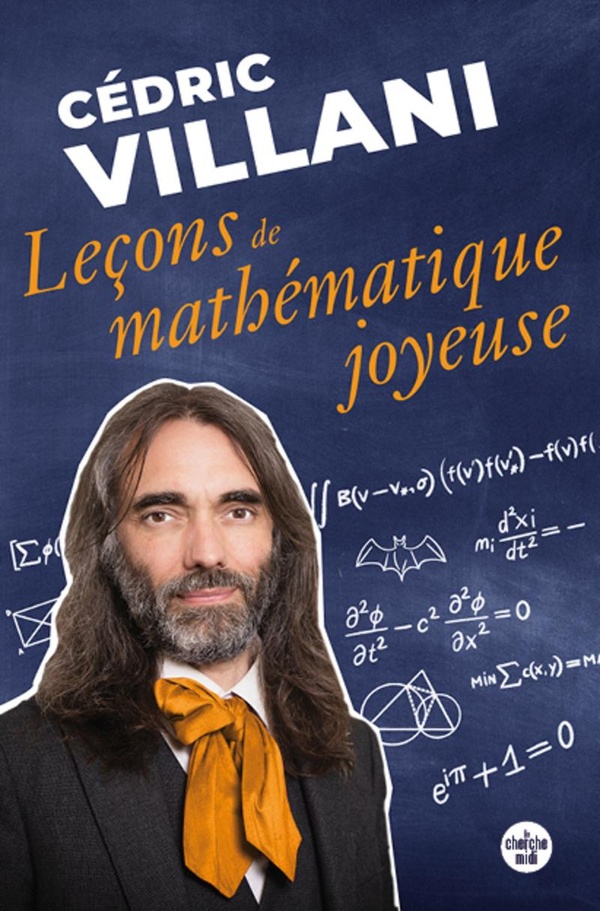
Viruses versus bacteria: A solution to overcome antibiotic resistance - Pascale Cossart
NEW 2025!
The book deals with the issue of antibiotic resistance: antibiotic resistance developed by bacteria is becoming a pandemic threat, and it's urgent to find ways of dealing with it. In this book, Pascale Cossart argues that, in addition to antibiotics, there is another effective tool for destroying bacteria: bacteriophages, which are viruses that infect bacteria. They were discovered in 1917 by Félix d'Hérelle, who used them to kill bacteria responsible for infectious diseases, before the discovery of antibiotics in 1928. Antibiotics have been used in humans since 1948, and their success has eclipsed phages (which are now used only residually and marginally), as they have a much broader spectrum of action and are easier to produce in large quantities. But they are also generating ever-greater resistance. This phenomenon of antibiotic resistance has led to renewed interest in bacteriophages, which do not have this disadvantage and have other advantages, presented here in detail, with a view to personalized medicine. The book opens with an analysis of the threat: will antibiotic resistance be the next pandemic? The ability of bacteria to resist antibiotics is already a de facto epidemic, but it's an invisible, silent epidemic. It is estimated that it could cause 10 million deaths a year by 2050.
The problem is dealt with in 5 parts:
1. Bacteria and viruses;
2. Phages (or bacteriophages: bacteria viruses) and the mechanisms that enable them to infect and destroy bacteria;
3. Antibiotics and how they work + antibiotic resistance: its mechanisms and effects - a silent pandemic and a global threat
4. phage therapy: treating bacterial infections with phages
history, scientific aspects (how to prepare therapeutic phages, phage therapy renaissance, clinical trials, potential problems), regulatory aspects and indications
5. phage therapy: strengths and obstacles (scientific and regulatory) to wider use (towards personalized medicine)
.
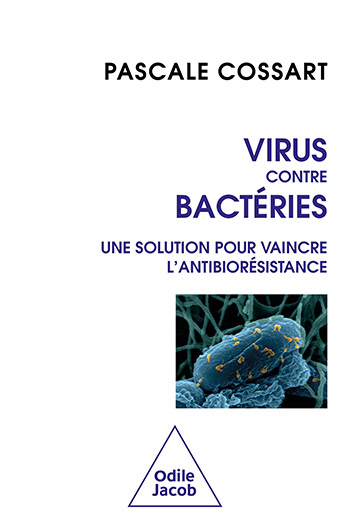
Around Alain Berthoz: Crossing frontiers to decipher the brain - Edited by Gretty Mirdal
NEW 2025!
This volume brings together texts presenting the intellectual and scientific work of Alain Berthoz. Numerous colleagues and collaborators, from a wide range of disciplines and nationalities, offer a synthesis of his major contributions in his preferred fields - neuroscience, physiology and cognitive science - and also remind us that he was able to build bridges between the natural sciences and the human and social sciences, fostering a fertile circulation of knowledge and approaches.
The contributions are arranged in 6 parts. After a prologue by Gretty Mirdal, Director of the IEA from 2012 to 2018, followed by a text by Alain Berthoz, there are:
- Introduction
- Child development and education
- Perception, action, memory
- Pathology
- Art and virtual worlds
- Perspectives for urbanism, energy and mobility
These texts testify to the breadth of Alain Berthoz's research and action, and his ability to transcend disciplinary boundaries. Jean-Pierre Changeux, Claudie Haigneré, Carlo Ossola and Lionel Naccache, among others, recall the circumstances of their meeting and the nature of their collaboration with him. Some articles offer a veritable history of science based on his work, others present collaborative research or shared journeys, and still others have a more personal dimension, recounting encounters and anecdotes.
All of these testify to Alain Berthoz's international influence and his talent for uniting researchers around innovative themes, both at the Collège de France and the Institut d'études avancées de Paris.
.
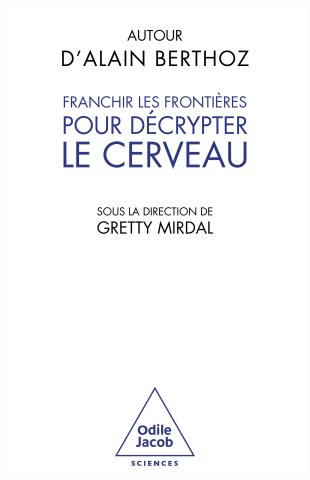
A short history of cosmology - Françoise Combes
NEW 2025!
From Ptolemy to the James Webb Telescope: discovering the universe and its galaxies.
The aim of cosmology is to describe the Universe and trace its history. Until the early 20th century, the observable Universe was limited to our immediate vicinity: planets and their erratic motions, stars, the white band of the Milky Way, and "nebulae", extended luminous zones. We had already understood a number of essential things: that the Earth was round, as early as 500 BC; that it revolved around the Sun, with Copernicus; that all body movements were due to gravitation, thanks to Newton. But it was difficult to go any further as long as we didn't know how to determine the distances of all these objects.
It was a woman, Henrietta Leavitt, who in 1909 made the discovery that certain variable stars could be used as distance indicators. And then, surprise: some objects were far too distant to belong to our Milky Way. The Universe had become immense, and our galaxy just one of many. The story then continued to accelerate, and one discovery followed another, so many pieces of a puzzle being assembled in competing models, so many answers calling for new questions.
.
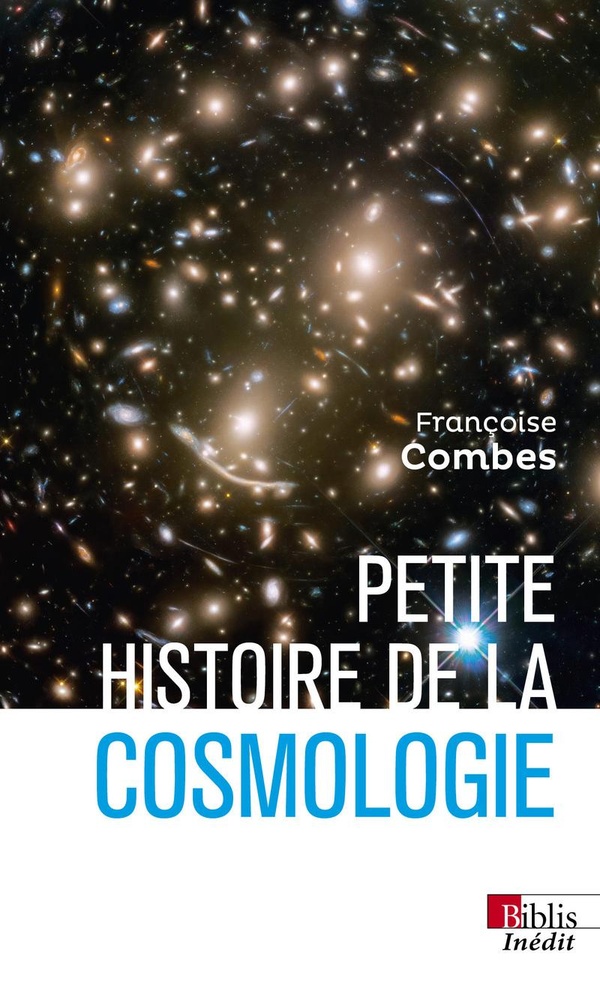
Ma Petite Histoire des nombres - Étienne Ghys
NEW 2025!
We often hear, "I've always sucked at math."
Is it because we don't generally explain "what it's for" or "where it comes from" that many shy away from numbers and calculations? Yet most of us have a genuine curiosity, even fascination, for "the numbers", even if we claim not to understand them.
This little book is certainly not a lesson in arithmetic.
It's aimed at Mr. and Mrs. Everyman and doesn't seek to convince them to become mathematicians, but rather to reconcile them with numbers. Numbers are not the enemy. On the contrary, when we try to get to know them, we often meet good friends who have surprises in store for us. They are all around us, they have profoundly changed our civilization, and Pythagoras even dared to assert that "everything is number"!
Étienne Ghys presents a very personal look at a number of elementary mathematical ideas, as he himself has encountered them in his career. Drawing on numerous examples, he answers all sorts of fascinating questions that readers have never asked themselves.
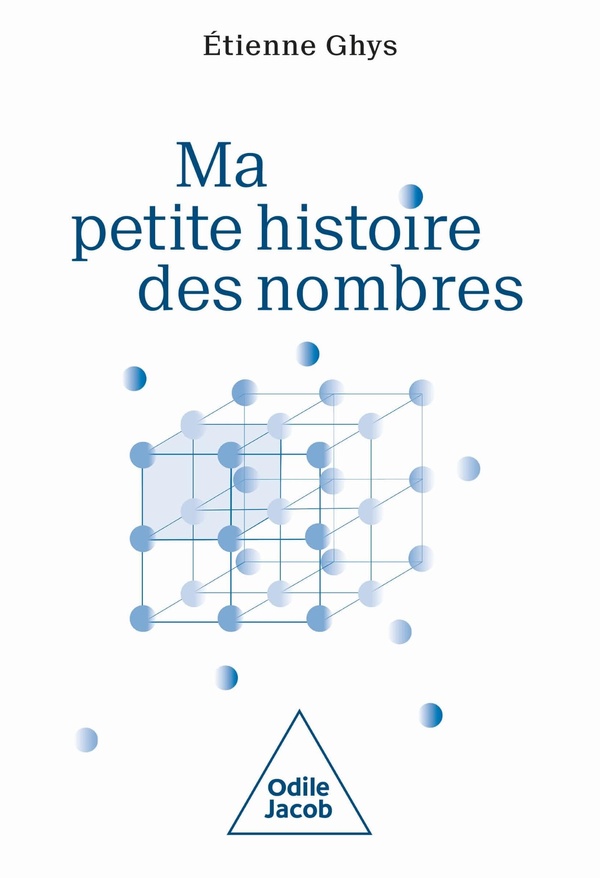
L'Homme cérébral: Understanding your brain to better know yourself - Yves Agid
NEW 2025!
Experience shows that we're not always thinking clearly when it comes to determining what makes up our brains and how they work. Questions abound: what are the components of the brain's machinery and how did they evolve? How does the brain process all the information it receives to produce our thoughts, emotions, language, memory and everything else that enables us to make decisions? How does the brain relate to the rest of the body? To answer these questions, Yves Agid takes us inside the fascinating, living, thinking machine that is the human brain. He identifies the main mental functions produced by the brain, and explains their foundations, purposes and limits, thus proposing a global conception of how it works.
Yves Agid is Professor Emeritus of Neurology and Cell Biology at the Université Pierre et Marie Curie, a member of the Académie des Sciences, and founder of the Institut du Cerveau et de la Moelle épinière (ICM) in Paris. His books include L'homme subconscient (Robert Laffont, 2013), Je m'amuse à vieillir (Odile Jacob, 2019), a book of interviews with Roger-Pol Droit, Je marche donc je pense (Albin Michel, 2022) and Le cerveau, machine à inventer (Albin Michel, 2023).
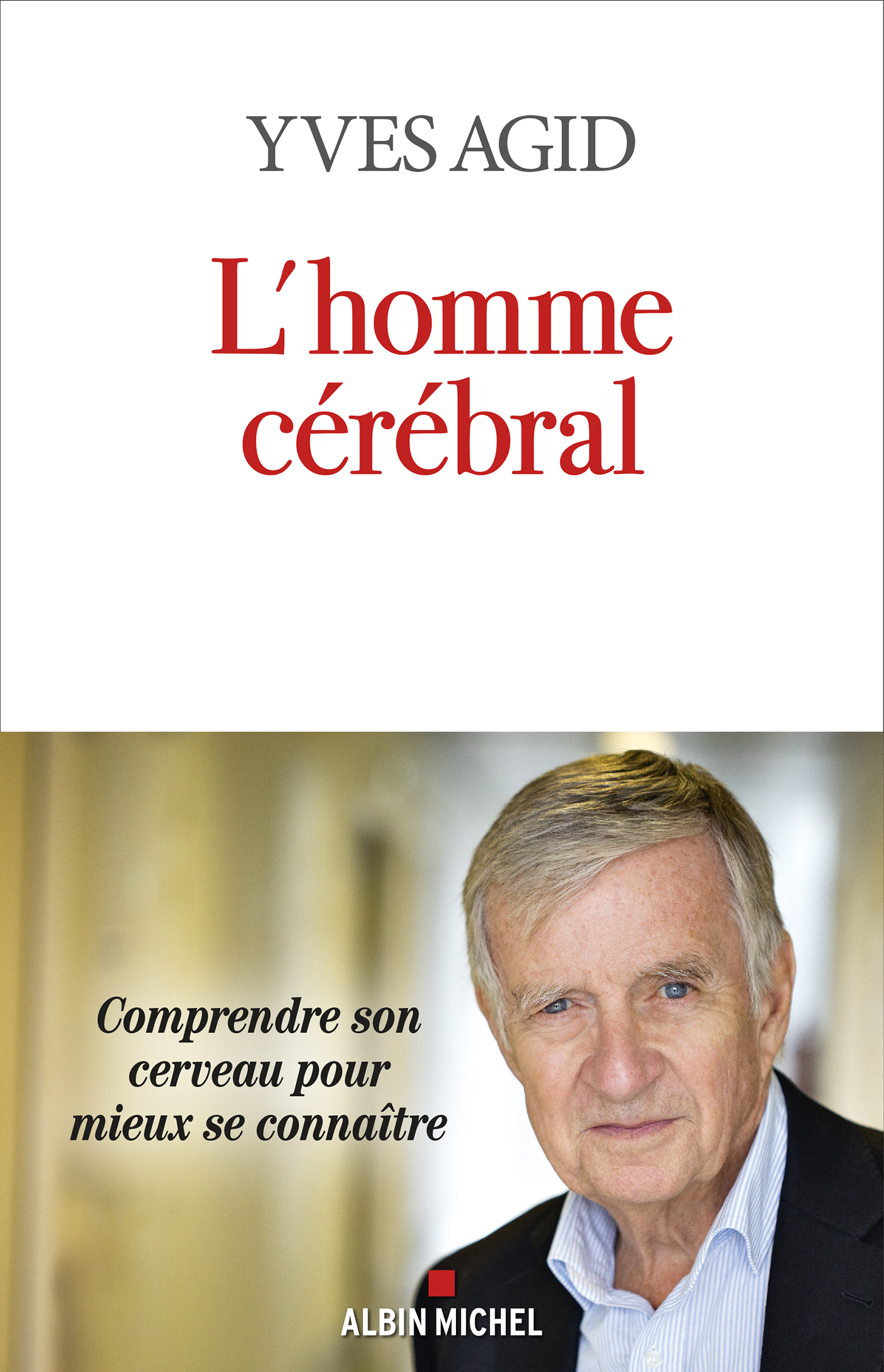
I walk therefore I think - Roger-Pol Droit, Yves Agid
NEW 2025!
Two friends are out for a walk. One is a philosopher, the other a neurologist. They converse for pleasure, walking through fields and woods over four seasons. They converse freely, without formality, seeking to understand what's going on inside us as we walk.
Does walking encourage thinking? If so, why? Is thinking comparable to walking? How does the brain control leg movement, balance and body posture? What is the relationship between these three characteristics of the human species: thinking, speaking, walking upright?
As they go along, in simple, precise terms, they finally evoke the relationship between science and philosophy, their unfortunate divorce, their desirable reunion.
Between divergences and convergences, their common desire to see things clearly is communicative. And their joy is quickly shared. Step by step.
Roger-Pol Droit, philosopher and writer, was a researcher at the C.N.R.S. and teacher at Sciences-Po. His work, some forty books (research, teaching, surveys, fiction), has been translated into over thirty languages.
Yves Agid is Professor Emeritus of Neurology and Cell Biology at Sorbonne University, former head of department (Salpêtrière Hospital), member of the Académie des Sciences, co-founder of the Institut du Cerveau. He is a specialist in the study of the mechanisms and treatment of neurodegenerative diseases.
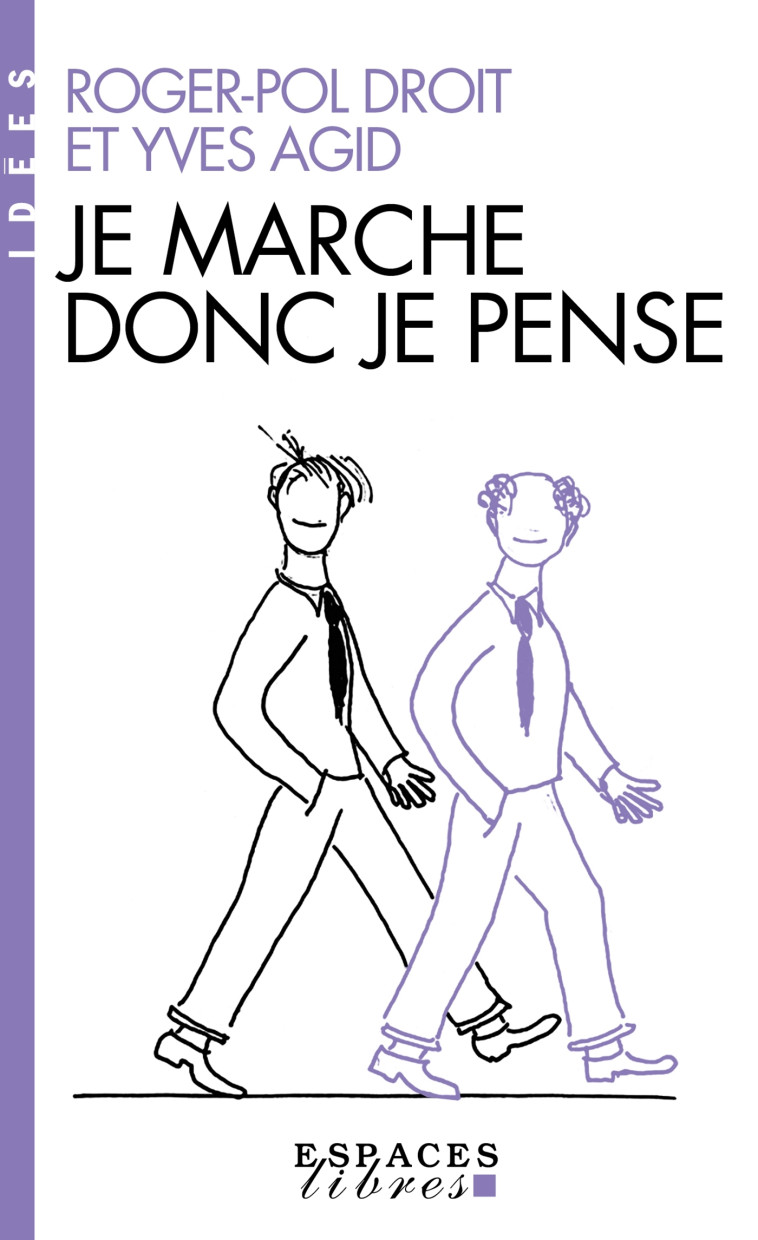
If Einstein had known - Alain Aspect
NEW 2025!
Alain Aspect wanted to write this book to share with us his fascination with the debate between two giants of physics, Niels Bohr and Albert Einstein, over the interpretation of quantum mechanics.
Almost half a century after his own experiments, Alain Aspect was awarded the Nobel Prize in Physics for showing that Einstein's vision of the quantum world must be abandoned.
Alain Aspect places the debate in the incredible history of quantum physics. Making no secret of his admiration for Einstein, he shows us how the quasi-philosophical controversy he engaged in with Niels Bohr led to very real experiments and the invention of new quantum technologies.
As he recounts his journey, Alain Aspect explains with passion and clarity how he revealed one of the most extraordinary properties of quantum entanglement, and tries to imagine Einstein's reaction to his experimental results.
A major book.
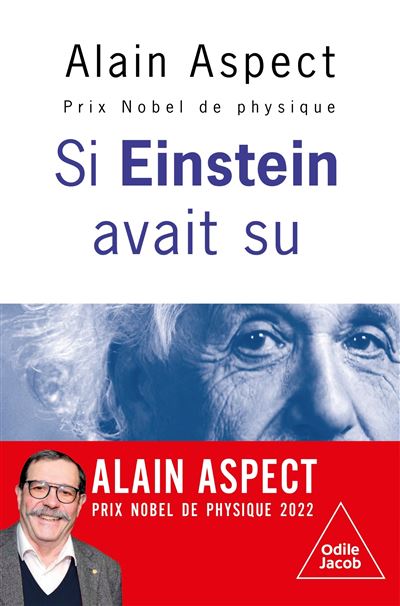
Atlas historique du Ciel - Pierre Léna and Christian Grataloup
Living under the sky and understanding the Universe: a quest of all human societies.
All societies have sought to understand the Universe. The first sky enthusiasts were mathematicians as well as philosophers, watchmakers as well as navigators. Their names were Thales, Ptolemy, Al-Khwarizmi, Kepler, Galileo, Newton, Shoujing, Einstein, Herschel, Hubble...
Thanks to them, today we send rockets into space, we explore the Moon and the planets, we investigate whether extraterrestrial life exists....
This atlas tells the story of the discoveries of these men and women, famous or anonymous, who on every continent have taken part in this formidable epic.
With the support of Sciences et Avenir/ La Recherche, Pierre Léna and Christian Grataloup have brought together the best researchers (physicists, anthropologists, historians, astronomers...) to make 6000 years of discoveries accessible.
An atlas that is as much a history book as a science book.
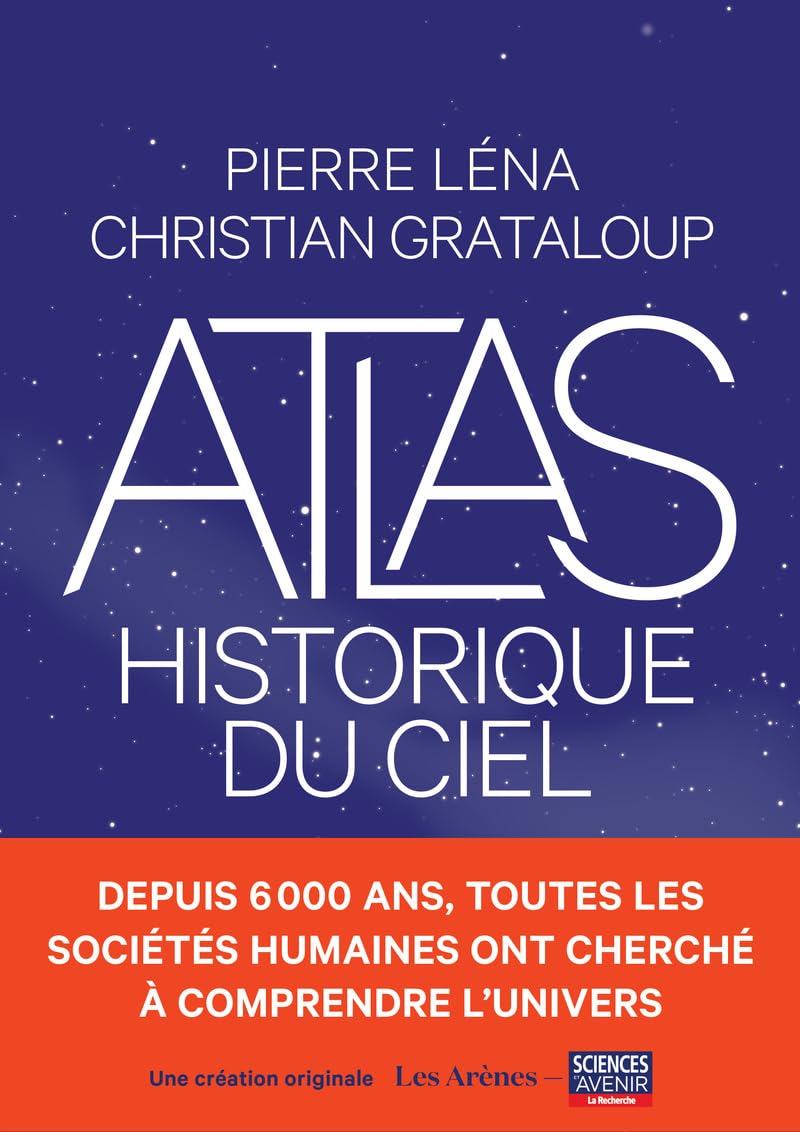
Facing climate change, Valérie Masson-Delmotte
CNRS Editions - November 2024
Quantifying past variations in climate and the atmospheric water cycle from natural archives, using this information to evaluate climate models, better anticipate future changes and take the measure of human influence: these are the broad outlines of Valérie Masson-Delmotte's research work. Looking back on her involvement in major projects, notably in Greenland, she also describes her experience with the IPCC, as co-chair of one of its working groups from 2015 to 2023.
Throughout her career, Valérie Masson-Delmotte has become aware of the need to commit to the democratization and appropriation of scientific knowledge on climate change, and the levers of action that can be used to limit the risks. She is a frequent public speaker, works to educate decision-makers, and takes action on a daily basis. With this book, she shows us the importance of climate science in helping us to be actors in these transformations.
.
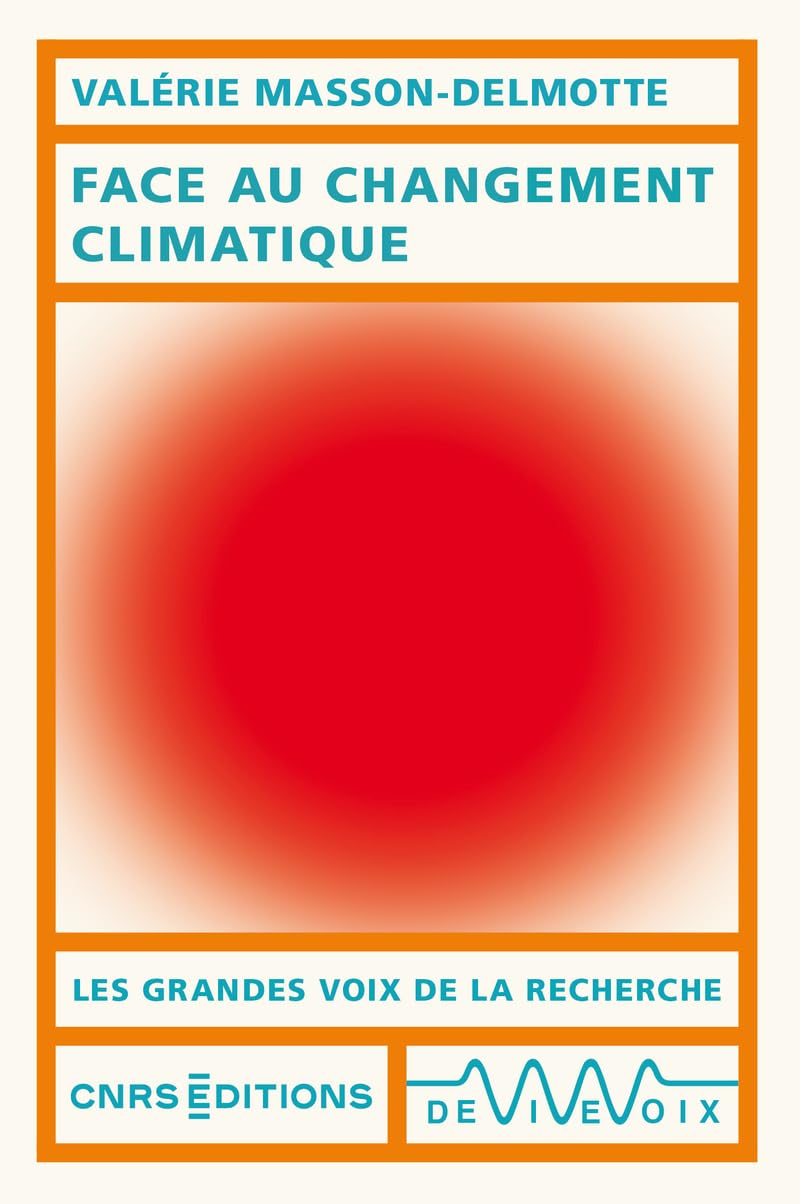
Ecosystems, a common good,Sandra Lavorel
CNRS Editions - 2024
Specializing in functional ecology, a discipline she played a major part in founding, Sandra Lavorel mimics the effects of global warming on alpine meadows. She thus studies in depth the functioning not of individual organisms, but of an entire ecosystem, in order to establish the indispensable services they provide: food, fuel, materials, carbon storage, water quality, resistance to erosion, crop pollination, etc.
To do this, she has to map the different environments in detail, listing and measuring plants, insects and animals. This enables computer modeling, essential for short-, medium- and long-term forecasts.
These analyses find an extension in the steering of biodiversity assessments at both national and international level, with the aim not only of taking stock of the current situation, but also of proposing solutions.
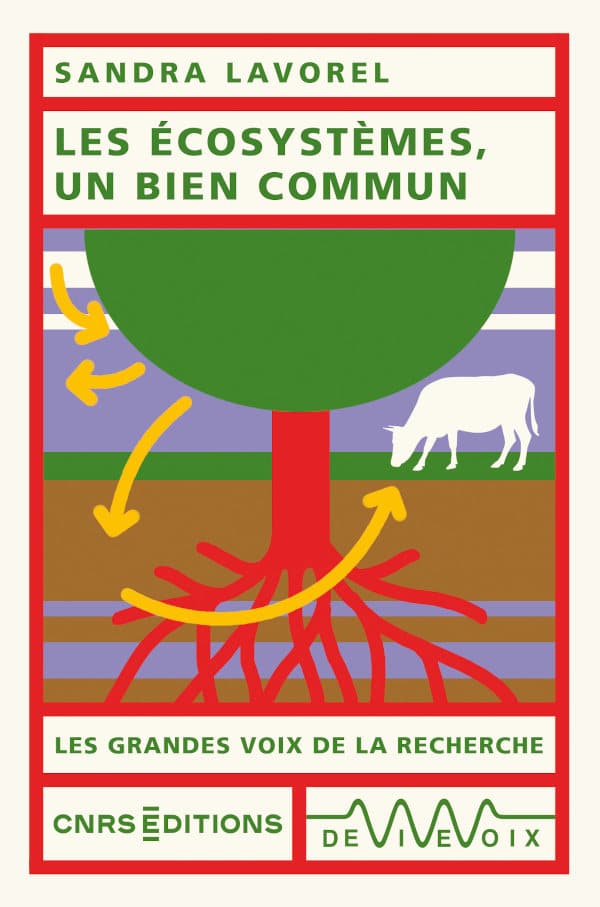
An idea in your head, Stanislas Dehaene
Editions Odile Jacob - 2024
"Learning is the human species' greatest talent. Even more than Homo sapiens, we are Homo docens: we learn from each other, in society, with a speed and efficiency that even the most advanced artificial intelligence algorithms fail to approach.
But really, how do we learn? What changes in our brains as we learn to walk, talk, read or play the violin?
At any age, our brains continue to evolve - but is it as easy for an adult as it is for a baby? What do we gain in wisdom, what do we lose in fluidity as we progress through the stages of life?
To all these questions, I'm going to try to shed some simple and entertaining light. Together, we'll learn how the brain learns, and discover how to use this knowledge to learn better, to make better use of our brain's fantastic capabilities." S. D.
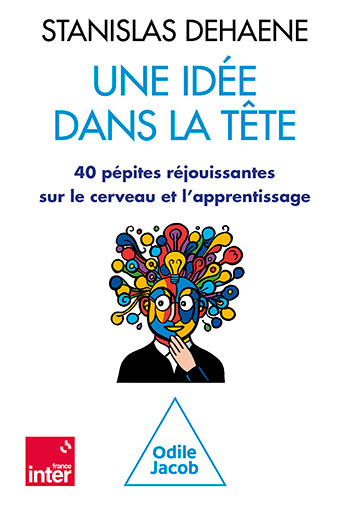
Glass - an eternal material, Didier Roux
EDP Sciences - 2024
This book describes the many facets of glass, the extraordinary material that has always aroused fascination and spanned millennia, ubiquitous in architecture and our everyday lives. Two remarkable characteristics distinguish glass: its exceptional transparency, a rarity among mineral materials that can be manufactured in large quantities, and its extremely variable viscosity over a wide temperature range, enabling unique industrial shaping processes. Through a narrative that interweaves history, science, industry and economics, this book offers a captivating exploration of the singularity of glass. It highlights how its unique properties have kept it in a privileged position, detailing its evolution through the ages. Following this journey through the beautiful illustrations, readers will discover a richly instructive history, revealing glass's influence on various aspects of our lives and culture.
Finalist for the Prix Roberval 2024 in the 'General Public'
category.
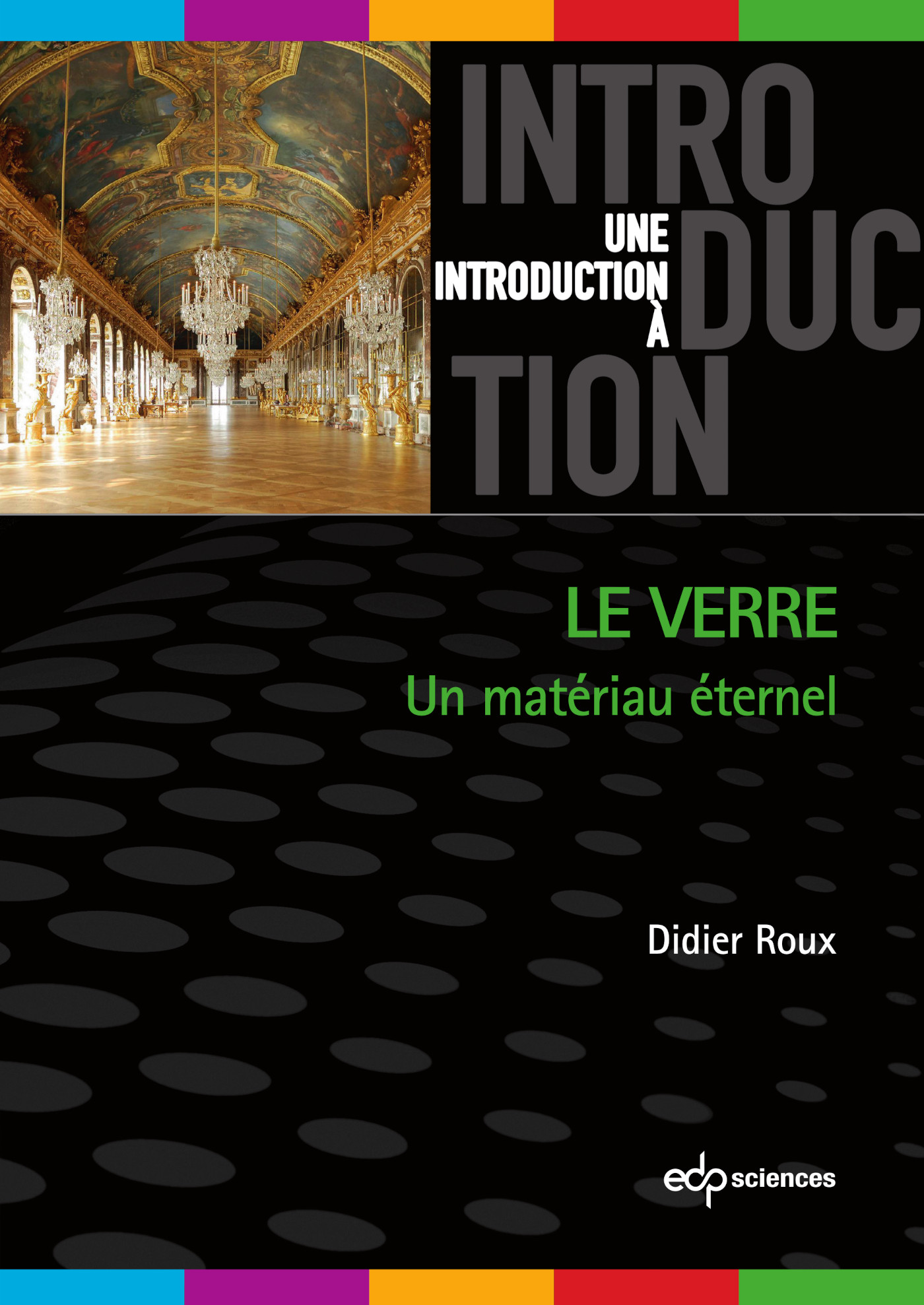
Les drogues, le cerveau et les états de conscience modifiés : Du chamane au médecin (Preface by Jean-Pierre Changeux) by Joel Bockaert
Editions Odile Jacob - 2024
What happens in a brain on psychedelics? Joël Bockaert looks at the neurochemical and neurophysiological mechanisms of drugs that induce altered states of consciousness, akin to meditation experiences, trance or the mysterious oceanic feeling.
Magic mushrooms, ayahuasca and their natural cousins have been used in shamanic rituals for millennia. LSD, ecstasy, ketamine and other synthetic derivatives have made their way from the laboratory to the party scene. This book recounts the exotic and scientific adventures surrounding each of these substances. We meet writers in search of inspiration, CIA agents on a mission, hippies hoping for the advent of a psychedelic New Age.
In recent years, these drugs have been taken seriously by clinical research. New molecules, analogous to psychedelics, appear to be producing therapeutic results, without having psychedelic effects, particularly in the management of psychiatric pathologies.
